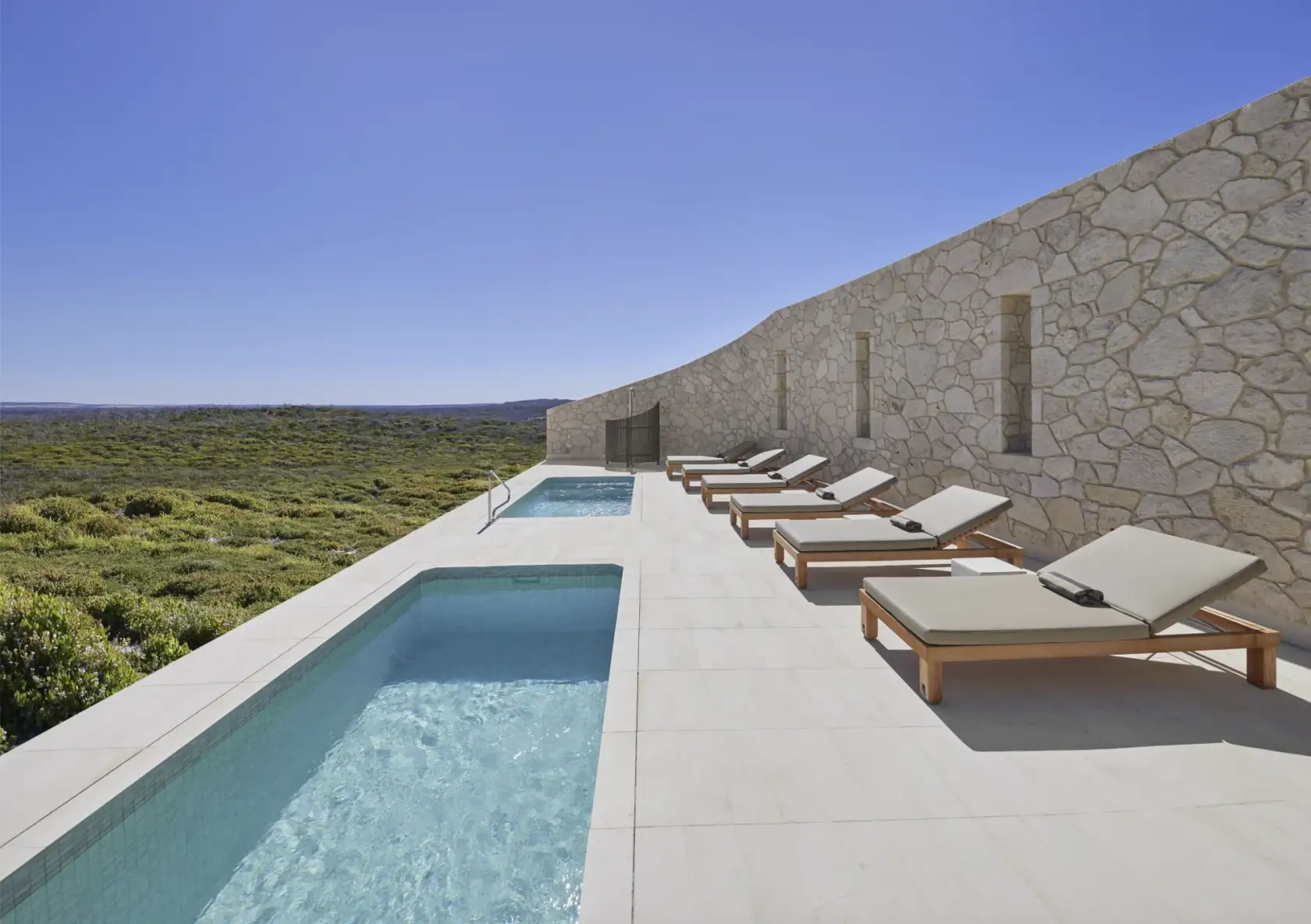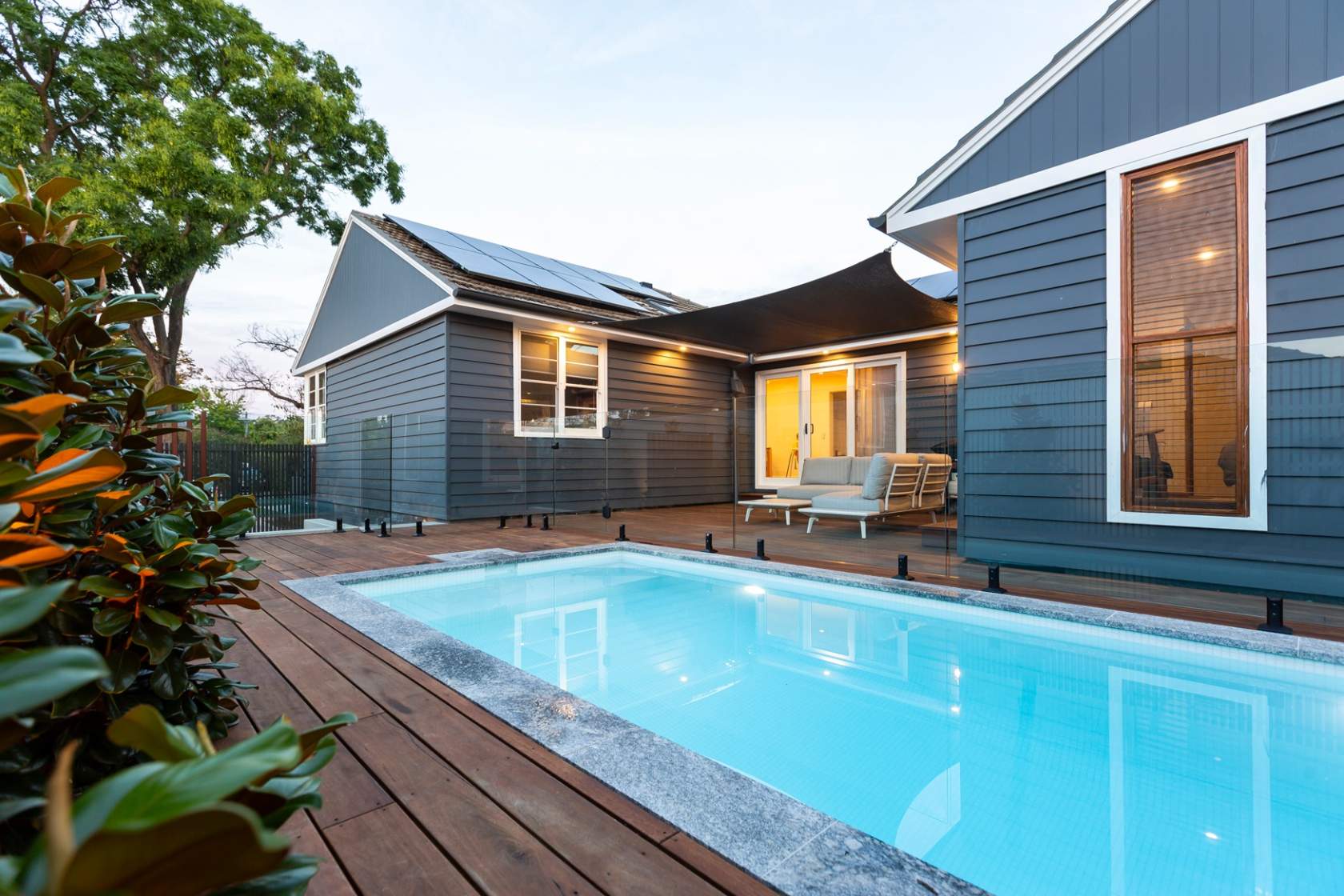

Exploring the Benefits of Saltwater Pools and Spas
There’s a growing trend in the pool industry in Australia right now that doesn’t seem to be slowing down. That trend is the saltwater pool. Now, if you’re not familiar with what a saltwater pool is, that’s okay. They’ve been around for several decades now but had a slow start, now in 2023, we’re seeing rapid growth in this type of pool system.
So today, we’ll be taking you through the reasons that new and current pool owners are choosing to go with this interesting pool technology. Let’s check it out.
Understanding Saltwater Pools and Spas
Before we go much further into what’s great about a saltwater pool or spa, we’re going to take this opportunity to explain how they work.
What Exactly is a Saltwater Pool?
You might be wondering, "Saltwater? Does that mean it's like swimming in the ocean?" Not quite. Saltwater pools use a special system called a salt chlorine generator. Instead of adding chlorine directly to the pool, you add salt. The generator then uses an electrolytic process to break down the salt, producing the chlorine required to sanitise the pool. It's a clever way to keep your pool clean without needing to handle and store a ton of chemical chlorine.
Busting Myths: Salinity Levels
Now, before you start thinking about beach vibes and ocean-like salinity, let's set things straight. A saltwater pool isn’t as salty as the sea. In fact, the salinity level of these pools is closer to your teardrop than to the vast blue oceans. This means you won't leave the pool feeling sticky or overly salty. It's a subtle touch of salt, just enough to help sanitise and give you that smooth water experience.
Top Benefits of Saltwater Pools and Spas
Here’s the part you’ve been waiting for, what is it that makes a saltwater pool system the ideal choice for your home?
Gentler on Skin and Eyes
Have you ever taken a dip in a chlorinated pool and found yourself with irritated skin or red eyes afterwards? We've all been there. One of the standout advantages of saltwater systems is that they're notably kinder to our bodies. With less direct chlorine addition, the water in saltwater pools and spas is softer and less aggressive on our skin and eyes. No more emerging from a swim looking like a fresh chicken pox case.
Cost-Effective in the Long Run
There’s a common belief that saltwater pools are more expensive than their chlorine counterparts. In many cases, this actually isn’t true. You can find both saltwater and chlorine systems at both ends of the price range if you know where to look.
In fact, with saltwater pool systems, you'll likely find yourself saving money. Think about it: less frequent purchases of chlorine, no need for regular shocking, and reduced maintenance visits. Over time, these savings add up, making the saltwater system a wise long-term investment for your pool or spa.
Less Maintenance Intensive
If you ask any pool owner about their least favourite chore, maintaining the pool's chemical balance will probably be somewhere near the top of the list. Fortunately, with saltwater systems, this task becomes a breeze. The salt cells continuously generate just the right amount of chlorine, ensuring consistent levels. This nifty feature means fewer chemical adjustments for you, letting you spend less time tending to your pool and more time enjoying it.
Environmentally Friendly
In our increasingly eco-conscious world, every bit we can do to reduce our environmental footprint counts. Saltwater pools shine in this aspect. With reduced chemical usage, there's less chemical runoff entering our natural water systems. Moreover, the need for plastic chlorine containers diminishes, meaning less plastic waste.
Extended Lifespan of Pool Equipment
Let's chat about the longevity of your pool equipment. Traditional chlorine can be harsh, leading to quicker wear and tear on your pool components. Saltwater systems, with their milder sanitising process, can enhance the lifespan of your pool equipment. Fewer replacements and repairs? That's music to our ears!
Better Water Quality
Last but by no means least, let's talk about the experience of swimming in a saltwater pool. The water feels silkier and smoother, a sensation many swimmers adore. Additionally, saltwater pools lack that overpowering chlorine odour that can often be off-putting. Instead, you get a more natural, refreshing swimming experience.
Considerations When Switching to a Saltwater System
So let’s say we’ve convinced you – you’re now a saltwater system evangelist. What do you need to know before you switch to a saltwater system?
Initial Setup Costs
While we've touched on the long-term savings of a saltwater pool system, it's worth noting the upfront costs. Yes, setting up a saltwater system can be pricier than a traditional chlorine one. But it doesn’t have to be. Think of it as an investment – one that pays off in reduced maintenance, improved water quality, and extended equipment lifespan.
Electricity Consumption
Another point to mull over is the electricity consumption. Salt chlorine generators require power to break down the salt and produce chlorine. This means a possible uptick in your energy bills. However, when weighed against the cost savings from reduced chemical purchases and maintenance, many pool owners find the increase minimal in comparison.
Maintenance of the Salt Cell
Saltwater systems might cut down on a lot of the traditional pool chores, but they're not entirely hands-off. The salt cell, which is at the heart of the saltwater system, will need periodic cleaning to remove any calcium buildup. Plus, like all components, it won’t last forever. Typically, a salt cell will need replacement after several years, depending on use and maintenance. So, while you might not be handling chlorine as often, it’s essential to keep an eye on the salt cell’s condition.
TDS (Total Dissolved Solids) Levels
A lesser-known point to consider when talking about saltwater pools is the level of Total Dissolved Solids (TDS). Over time, the TDS levels in your pool might rise, which can lead to less efficient chlorine generation and can even alter the feel of the pool water. Checking and managing these levels periodically is a good practice for any saltwater pool owner.
As you can see, there are plenty of reasons to get around a saltwater pool or spa for your home. If you’re considering making the switch, we recommend you look for one of our listed professionals to help with purchase and installation. If you found this content helpful, check out the rest of our work on the site! Or come see us in person at one of the Pool and Spa Expos in your state.
